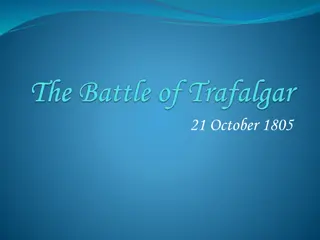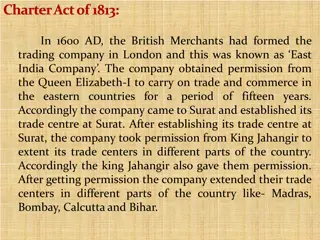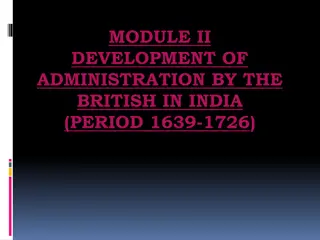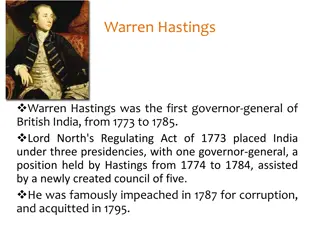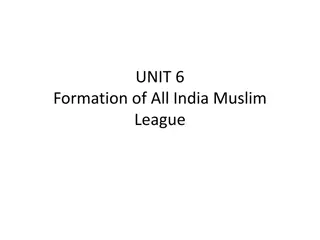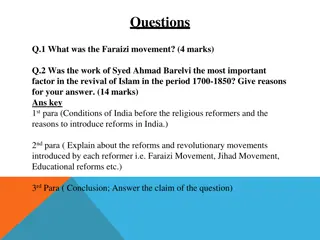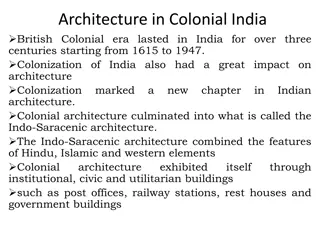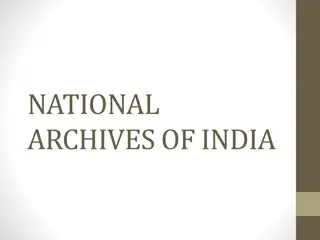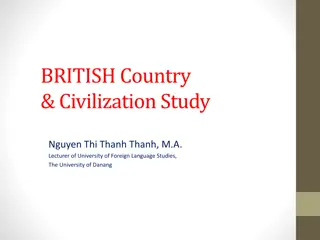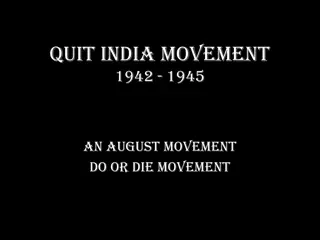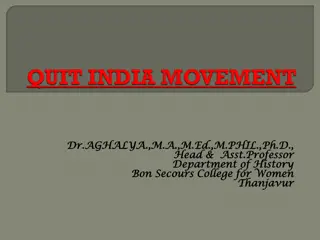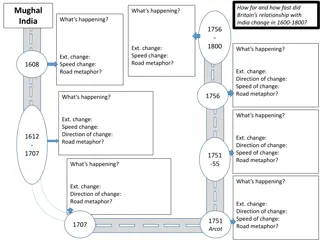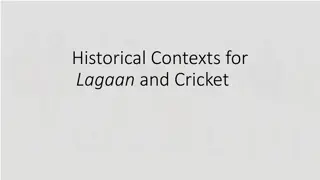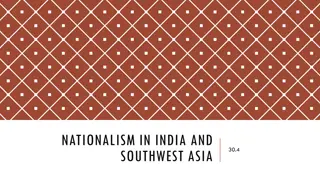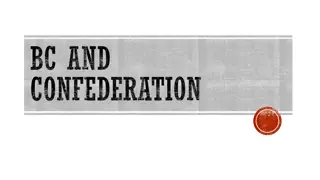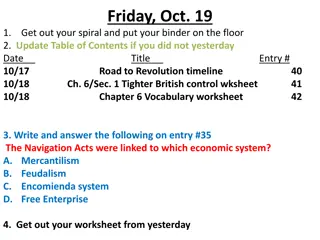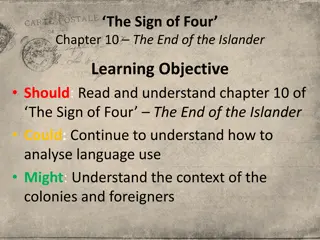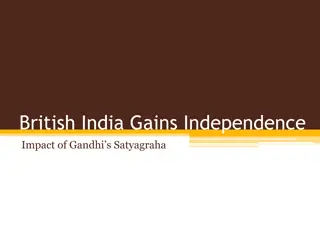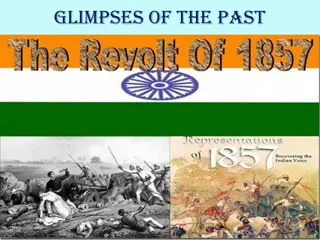Buy Counterfeit British Pounds Online - @Eurosbillsnotes
Buy top-quality undetectable Buy Counterfeit British Pounds Online to cover most of your expenses. Get fake British bills to cover most of your expenses. The United Kingdom is one of the most expensive countries in the world, with a high standard of living that comes at a cost. With rising property
2 views • 1 slides
The Shifting of India's Capital: The Story of New Delhi
The decision to move the capital of India from Calcutta to Delhi in 1911 led to the creation of Imperial Delhi, now known as New Delhi. This move was a reflection of British colonial rule in India, marked by controversies, cost overruns, and disagreements among architects. The shift was influenced b
1 views • 19 slides
Top Heart Hospitals in India for heart treatment
India has many top heart hospitals in the world that are renowned for their advanced cardiac care, world-class facilities, and best heart treatments. These hospitals have highly skilled and best cardiologists in India with the latest technology. Dr. Naresh Trehan is the best cardiologist in India. S
4 views • 2 slides
State Bank of India
State Bank of India (SBI) is one of the largest and pioneer public sector banks in India. It was established in 1806 as the Bank of Calcutta, making it one of the oldest commercial banks in the Indian subcontinent. It later merged with the Bank of Bombay and the Bank of Madras in 1921 to form the Im
4 views • 5 slides
Discover the Rich Culture and Diverse Landscapes of India
India, officially known as the Republic of India, is a diverse and culturally rich country located in South Asia. With vibrant traditions, a rich history, and stunning landscapes, India offers a mesmerizing experience for travelers. From the majestic forts and palaces of Jaipur to the spiritual ritu
3 views • 17 slides
Union Bank of India
Union Bank of India was established on November 11, 1919, as a limited company with its headquarters located in Mumbai. Union Bank of India stands as a prominent public sector bank, with 76.99 percent of its total share capital held by the Government of India.\nOrganisation of Union Bank of India\nU
1 views • 5 slides
Understanding British Culture and Civilization: Insights from Nguyen Thi Thanh
Explore the nuances of British identity, language, and multiculturalism through the expertise of Nguyen Thi Thanh, a lecturer at the University of Danang. Discover the distinctions between Great Britain, the United Kingdom, and the British Isles, as well as the linguistic diversity and immigration h
1 views • 14 slides
Tea Cultivation in India: A Comprehensive Overview
Tea cultivation in India has a rich history dating back to 1823 when British settlers discovered wild tea plants in Assam. Today, India is the second-largest tea producer globally. Major tea-producing regions include Assam, West Bengal, Tamil Nadu, and Kerala. The ideal conditions for tea growth inc
0 views • 11 slides
An Introduction to British Media: Overview of Print and Digital Platforms
This content provides an insightful overview of the British media landscape, focusing on newspapers, television, radio, and social media. It discusses the distinctions between tabloids and broadsheets, highlighting the influence of British media on social and political views. Key characteristics of
1 views • 43 slides
The Battle of Trafalgar: A Historic Naval Triumph
In 1805, the Battle of Trafalgar secured British naval supremacy and thwarted Napoleon's invasion plans. Admiral Horatio Nelson led the British fleet to victory, although losing his life in the process. The battle, marked by strategic maneuvers and fierce engagements, saw the British capturing enemy
1 views • 9 slides
British Educational Initiatives in India: Charter Act of 1813
In 1813, the Charter Act marked a significant shift in British education policies in India. It mandated the East India Company to fund Indian education and allowed Christian missionaries to engage in educational activities. The Act allocated funds for promoting literature, science, and native schola
1 views • 22 slides
British Country & Civilization Study with Nguyen Thi Thanh Thanh, M.A.
This course introduces students to various aspects of British and American life, covering geography, history, institutions, and people's lifestyle. With a focus on enhancing cultural awareness, communication, and language skills, the syllabus includes topics such as the United Kingdom, important eve
0 views • 20 slides
British Administration in India: 1639-1726 Development
Development of British administration in India from 1639 to 1726 under the British East India Company, including the formation, charter, legislative powers, judicial system, and establishment of trading centers like Surat. The administration of justice and court developments during this period are h
0 views • 22 slides
Warren Hastings: First Governor-General of British India
Warren Hastings served as the first Governor-General of British India from 1773 to 1785. He introduced new laws, supported educational initiatives, and implemented reforms in areas such as judicial systems and revenue collection. Despite facing impeachment for alleged corruption, he was acquitted an
0 views • 17 slides
Formation of All India Muslim League in British India
The All India Muslim League was established in 1906 to protect the rights of Indian Muslims and later called for a separate Muslim nation at the time of British India's partition in 1947. Initially supported by the British, the league later aimed for self-government. Reasons for its formation includ
0 views • 15 slides
Haji Shariatullah and the Faraizi Movement in British India
Haji Shariatullah, an Islamic reformer born in 1781, founded the Faraizi movement in 1818 in British India to promote Islamic practices and protect tenants' rights. His early life, education in Arabia, and the significance of the Faraizi Movement in the revival of Islam are highlighted in this histo
0 views • 14 slides
Development of Indian Penal Code (IPC) 1860 and Its Impact in British India
The Indian Penal Code (IPC) of 1860 was introduced in British India after a series of historical events led to the need for a comprehensive criminal justice system. The disintegration of the Mughal Empire paved the way for British takeover, resulting in variations in criminal laws across different B
1 views • 24 slides
Evolution of Colonial Architecture in British India
The British Colonial era in India spanned over three centuries from 1615 to 1947, leaving a lasting impact on the country's architecture. The fusion of Hindu, Islamic, and Western elements gave rise to the distinctive Indo-Saracenic style, showcased in various institutional and civic structures. Exp
0 views • 16 slides
National Archives of India: Preserving India's Historical Records
The National Archives of India, established in 1891 in New Delhi, serves as the custodian of government records, providing valuable insight into India's political, social, economic, cultural, and scientific history. Originating from efforts dating back to the British Raj, the archives have played a
0 views • 18 slides
Carnatic Wars in the 18th Century: Conflict between Indian and British East India Companies
Carnatic Wars were a series of military conflicts in the mid-18th century between the Indian Company, British East India Company, and various independent rulers. Total of three wars were fought - First Carnatic War (1746-48), Second Carnatic War (1749-1754), and Third Carnatic War (1757-1763). The w
1 views • 12 slides
British Holiday Traditions and Bank Holidays Overview
Exploring British holiday traditions, vacations, and bank holidays, this study covers the significance of holidays in the UK, including vacation patterns, paid leaves, and common travel destinations. It delves into the differences between holidays in British English and American English, highlightin
1 views • 29 slides
The British Expansion in India: From Trade to Territory
The journey of the British in India from establishing trade through the East India Company to gaining territorial control is explored. The narrative covers the company's strategic moves, conflicts with local rulers, and pivotal events such as the Battle of Plassey that shaped British dominance over
0 views • 16 slides
The Quit India Movement 1942-1945: An August Movement
The Quit India Movement, also known as the August Movement or Do or Die Movement, was a mass protest on nonviolent lines in India from 1942 to 1945. Initiated by the Indian National Congress, it called for an immediate end to British rule in India. Led by leaders like Mahatma Gandhi, the movement ai
0 views • 16 slides
The Quit India Movement: A Pivotal Moment in India's Independence Struggle
The Quit India Movement, also known as the India August Movement, was a key event in India's fight for independence led by Mahatma Gandhi in 1942. This movement urged the British to grant India independence through peaceful non-violent protests. It called for an immediate end to British rule, the fo
0 views • 15 slides
Overview of Quit India Movement in Indian History
The Quit India Movement, initiated by Mahatma Gandhi in 1942, aimed to end British rule in India. It was a response to the collapse of the Cripps Mission and demanded immediate independence, leading to a series of strikes and demonstrations. The movement had three key phases, with significant contri
0 views • 16 slides
The Changing Relationship Between Britain and India (1600-1800)
Britain's relationship with India underwent significant transformations from 1600 to 1800. The East India Company faced challenges initially but eventually gained power through strategic battles and alliances with local rulers. The Battle of Plassey in 1757 marked a turning point, leading to British
0 views • 12 slides
The European Arrival in India: Exploration and Establishment
The commercial contacts between India and Europe have ancient roots through land and sea routes, with the sea route via the Cape of Good Hope being discovered by Vasco da Gama in 1498. Portuguese, Dutch, and English trading companies established settlements, with the British eventually gaining contr
0 views • 29 slides
Unveiling Historical Contexts of Lagaan and Cricket in Colonial India
Explore the intricate historical contexts of the film "Lagaan" and the sport of cricket in colonial India. Delve into the political history, princely India dynamics, class, caste, region, religion complexities, and the economic significance in the British Empire's rule. Unveil the interplay of racis
0 views • 6 slides
Hunter Commission of 1882 and Educational Reforms in India
The Hunter Commission of 1882 marked a pivotal moment in the history of education in India, following the transfer of administrative power from the East India Company to the British Crown. This commission, led by Sir William Hunter, assessed the state of education in the country and made significant
0 views • 18 slides
Impact of British Empire and Commonwealth on Migration: Unpacking Immigration Stories
Explore the historical impact of the British Empire and Commonwealth on British migration through six immigration stories. Understand how relations with former colonies have shaped diversity in Britain and influenced British immigration patterns. Key terms like migration, emigration, empire, and col
0 views • 23 slides
Nationalism in India and Southwest Asia: A Historical Overview
The aftermath of World War I led to a surge in nationalism in India and certain Southwest Asian countries, as empires like the Ottoman Empire and the British Empire showed signs of weakening. Indian nationalism grew due to factors such as promises of reform by the British, religious divisions, and e
0 views • 15 slides
Challenges and Choices in British Columbia's History
British Columbia faced economic challenges post the Gold Rush, leading to a consolidation of colonies and increasing debt. The united colony explored options of Confederation, maintaining British colonial status, or annexation by the US, driven by different groups with varied interests. This histori
0 views • 10 slides
The Remarkable Journey of Robert Clive: From Clerk to Governor in Colonial India
Robert Clive, known for his military prowess and statesmanship, rose from a humble clerk to a significant figure in the British East India Company. His strategic victories in battles like Arcot, Plassey, and Buxar shaped British colonial rule in India. As a statesman, he implemented civil reforms an
0 views • 4 slides
Impacts of British Rule in India
Explore the historical journey of British colonialism in India through key events such as the expansion of the East India Company, cultural changes, imposition of British laws, the Sepoy Mutiny, and subsequent protests. Witness the transformation of Indian society and the rise of resistance against
0 views • 17 slides
Colonial Challenges Under British Rule
In this academic material, students are instructed to update the Table of Contents and engage with resources related to tighter British control over the colonies. The tasks include exploring historical events like the Proclamation Act of 1763, Quartering Act, Sugar Act, Stamp Act, Declaratory Act, a
0 views • 18 slides
Colonial Influences and The British Empire
The British Empire once ruled over vast territories, including parts of North America, India, and Africa. European countries colonized other nations to expand trade and acquire resources. Colonization ceased in the 20th century due to moral objections and independence movements in colonies. The spre
0 views • 15 slides
Impact of Gandhi's Satyagraha on British India's Independence Struggle
Gandhi's principles of Satyagraha, emphasizing civil disobedience and non-violence, played a crucial role in India's fight for independence from British colonial rule. His leadership and methods such as boycotts and peaceful protests garnered international support, pressuring the British government
0 views • 18 slides
European Influence in South Asia: From Mughals to British Crown
Explore the historical journey of European intervention in South Asia, beginning with the Mughal era and culminating in British colonial rule. Learn about the motivations, impact, and changing relations over the centuries, from Portuguese exploration to the rise of the British East India Company.
0 views • 13 slides
The Inspiring Story of Gandhi's 1930 Salt March in India
Gandhi's 1930 Salt March in India was a powerful act of nonviolent resistance against British colonial rule. By defying the salt tax, Gandhi united millions of Indians and inspired a wave of civil disobedience that ultimately led to India's independence. This iconic event not only symbolized India's
0 views • 9 slides
Overview of the First War of Independence in India (1757-1857)
The content provides glimpses of India's past, focusing on the period from 1757 to 1857, leading up to the First War of Independence. It outlines the British East India Company's expansion, social issues in Indian society, British oppression, the role of key figures like Ram Mohan Roy, and the event
0 views • 16 slides









